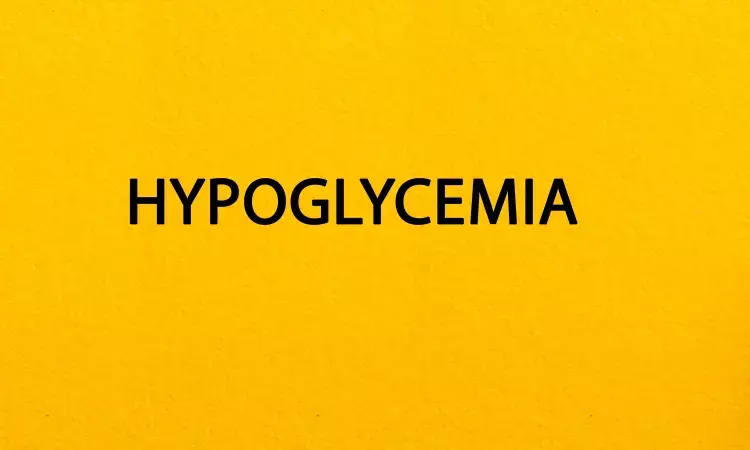- Home
- Medical news & Guidelines
- Anesthesiology
- Cardiology and CTVS
- Critical Care
- Dentistry
- Dermatology
- Diabetes and Endocrinology
- ENT
- Gastroenterology
- Medicine
- Nephrology
- Neurology
- Obstretics-Gynaecology
- Oncology
- Ophthalmology
- Orthopaedics
- Pediatrics-Neonatology
- Psychiatry
- Pulmonology
- Radiology
- Surgery
- Urology
- Laboratory Medicine
- Diet
- Nursing
- Paramedical
- Physiotherapy
- Health news
- Fact Check
- Bone Health Fact Check
- Brain Health Fact Check
- Cancer Related Fact Check
- Child Care Fact Check
- Dental and oral health fact check
- Diabetes and metabolic health fact check
- Diet and Nutrition Fact Check
- Eye and ENT Care Fact Check
- Fitness fact check
- Gut health fact check
- Heart health fact check
- Kidney health fact check
- Medical education fact check
- Men's health fact check
- Respiratory fact check
- Skin and hair care fact check
- Vaccine and Immunization fact check
- Women's health fact check
- AYUSH
- State News
- Andaman and Nicobar Islands
- Andhra Pradesh
- Arunachal Pradesh
- Assam
- Bihar
- Chandigarh
- Chattisgarh
- Dadra and Nagar Haveli
- Daman and Diu
- Delhi
- Goa
- Gujarat
- Haryana
- Himachal Pradesh
- Jammu & Kashmir
- Jharkhand
- Karnataka
- Kerala
- Ladakh
- Lakshadweep
- Madhya Pradesh
- Maharashtra
- Manipur
- Meghalaya
- Mizoram
- Nagaland
- Odisha
- Puducherry
- Punjab
- Rajasthan
- Sikkim
- Tamil Nadu
- Telangana
- Tripura
- Uttar Pradesh
- Uttrakhand
- West Bengal
- Medical Education
- Industry
Hypoglycemia Increases Risk of Cognitive Dysfunction in Type 2 Diabetes, finds study

Researchers have established that hypoglycemic events independently contribute to the risk of cognitive dysfunction in individuals living with Type 2 diabetes mellitus (T2DM). A recent study has replicated an extensive analysis of more than 3.9 million participants, indicating a 47% increased risk for cognitive dysfunction among participants with hypoglycemia compared to those without the condition. The study was published in Frontiers in Neurology journal by Min Ye and colleagues.
Type 2 diabetes mellitus has been widely recognized as a critical risk factor for cognitive dysfunction, a condition that can considerably affect life quality. However, the role of hypoglycemic events, which result from poor glycemic control, has been a subject of increasing debate in terms of vulnerability. Although there is a suggested association between hypoglycemia and cognitive dysfunction in various literatures, the nature of the association, in particular, how it could follow a dose-response pattern, has not been appropriately established. Therefore, the study aimed to determine the contribution of hypoglycemic episodes to developing cognitive dysfunction in T2DM patients and investigate the dose-response relationship between them.
Authors searched nine major databases from their inception to May 2023 for observational studies evaluating the association between hypoglycemia and cognitive dysfunction. A total of 17 articles with 30 studies including 3,961,352 participants were included for review. The pooled risk ratio and 95% CI are estimated by the DerSimonian-Laird method. In addition, a dose-response analysis was performed to investigate the potential relationship between the frequency of hypoglycemic attacks and the risk of cognitive dysfunction.
Results
• This analysis showed that hypoglycemic patients had a significantly higher risk of developing cognitive dysfunction.
• The combined RR of the association between hypoglycemia and cognitive dysfunction was 1.47 (95% CI: 1.35-1.60), with evidence of a 47% increased risk for cognitive impairment among patients experiencing hypoglycemic attacks.
• Episode of Hypoglycemia: The pooled RR for cognitive dysfunction was 1.20( 95% CI 1.11-1.31), which implies that there is a 20% increased likelihood of cognitive dysfunction.
• Two Episodes of Hypoglycemia: The pooled RR further increased, at 1.41 (95% CI 1.05-1.88), with a 41% higher risk of cognitive dysfunction.
• Three or More Episodes of Hypoglycemia: The pooled RR increased further, at 1.62 (95% CI 1.20-2.91), representing a 62% increased likelihood of cognitive dysfunction.
• The dose-response analysis showed that hypoglycemic episodes are linearly associated with cognitive dysfunction, with an increased likelihood of 17.87% with every additional episode of hypoglycemia (exp(b) = 1.178694, z = 7.12, p < 0.001).
This study concludes that hypoglycemic events are significantly associated with the risk of cognitive dysfunction in patients with T2DM. Every additional hypoglycemic episode increases the risk of cognitive impairment. The results have shown that effective management of blood glucose, screening for cognitive dysfunction, and health education for the prevention of hypoglycemia and its long-term consequences on cognition are of great importance.
Reference
Dr Riya Dave has completed dentistry from Gujarat University in 2022. She is a dentist and accomplished medical and scientific writer known for her commitment to bridging the gap between clinical expertise and accessible healthcare information. She has been actively involved in writing blogs related to health and wellness.
Dr Kamal Kant Kohli-MBBS, DTCD- a chest specialist with more than 30 years of practice and a flair for writing clinical articles, Dr Kamal Kant Kohli joined Medical Dialogues as a Chief Editor of Medical News. Besides writing articles, as an editor, he proofreads and verifies all the medical content published on Medical Dialogues including those coming from journals, studies,medical conferences,guidelines etc. Email: drkohli@medicaldialogues.in. Contact no. 011-43720751


